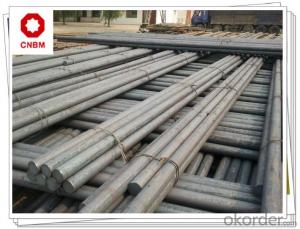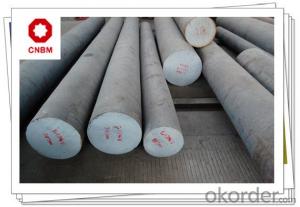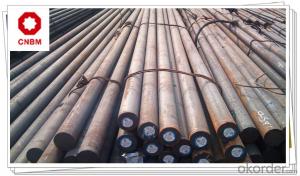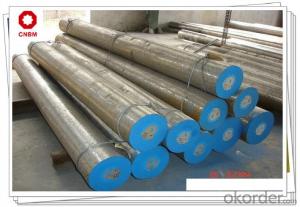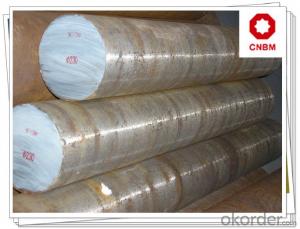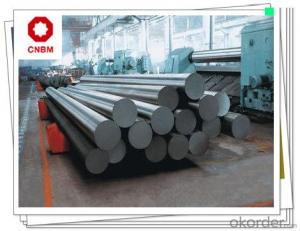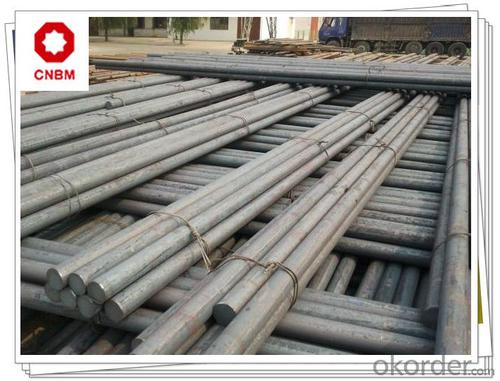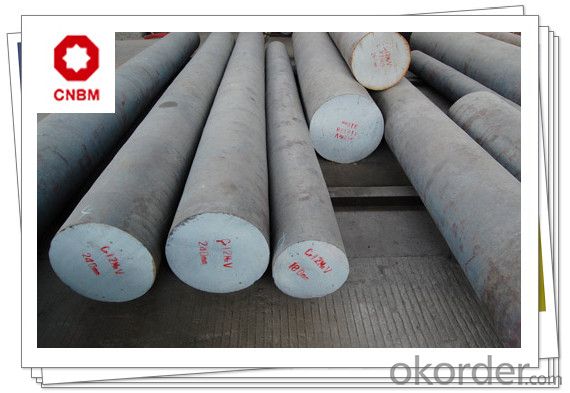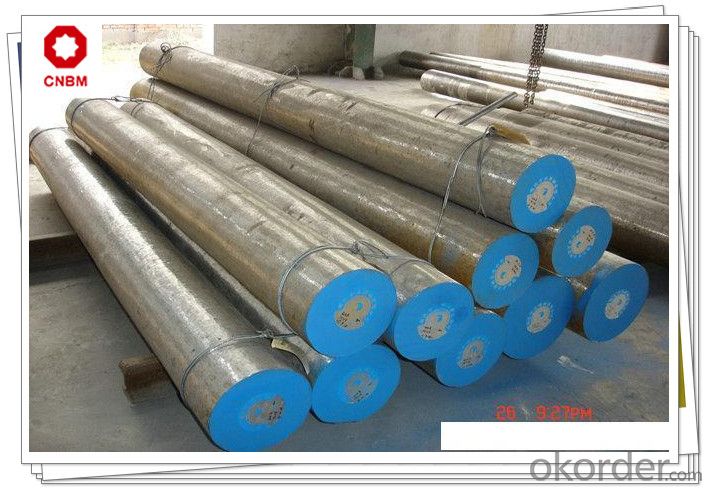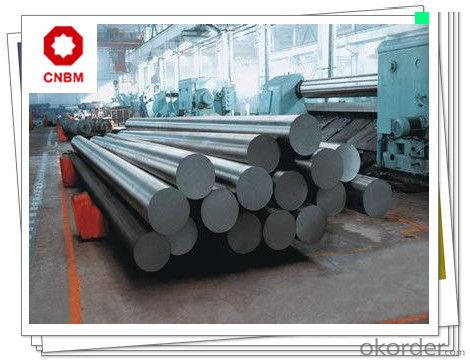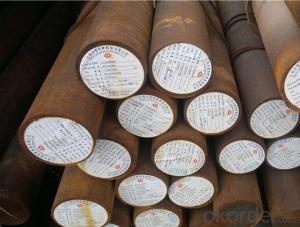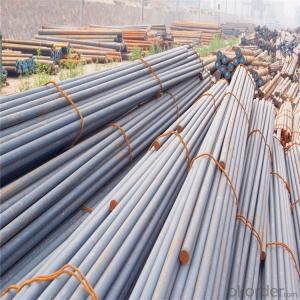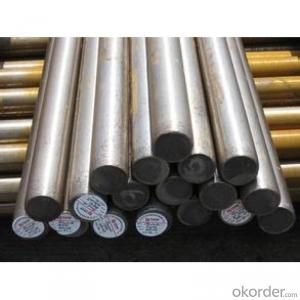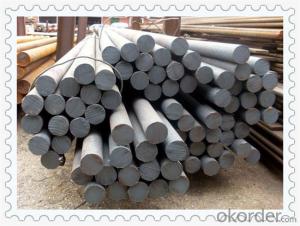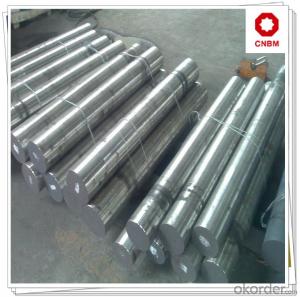Carbon Steel Rod SAE 1020 Carbon Steel Bar
- Loading Port:
- Shanghai
- Payment Terms:
- TT OR LC
- Min Order Qty:
- 30 m.t.
- Supply Capability:
- 120000 m.t./month
OKorder Service Pledge
OKorder Financial Service
You Might Also Like
Carbon Steel Rod SAE 1020 Carbon Steel Bar
Specification
1, Diameter: 8mm-250mm rounds
5mm-9mm rods
2, Length: 2m, 3m, 5.8m, 6m or customized
3, Standard: GB, ASTM, AISI, SAE, DIN, JIS, EN
OEM technology - send detailed technical parameters for accurate quotation.
2, Produce Process: smelt iron - EAF smelt billet - ESR smelt billet -
hot rolled or forged to get the steel round bar and plate
3, Heat Treatment: annealing, normalizing, tempering, quenching
4, Surface Treatment: Black, Polished, Galvanized
5, Quality Assurance: We accept third party inspection for all orders.
You can ask testing organizations such as SGS, BV, etc. to test our products before shipping.
| Chemical Component | C | Si | Mn | P | S | Cr | Ni | Cu |
| 0.17~0.23 | 0.17~0.37 | 0.35~0.65 | ≤0.035 | ≤0.035 | ≤0.30 | ≤0.25 | ≤0.25 |
Products Show
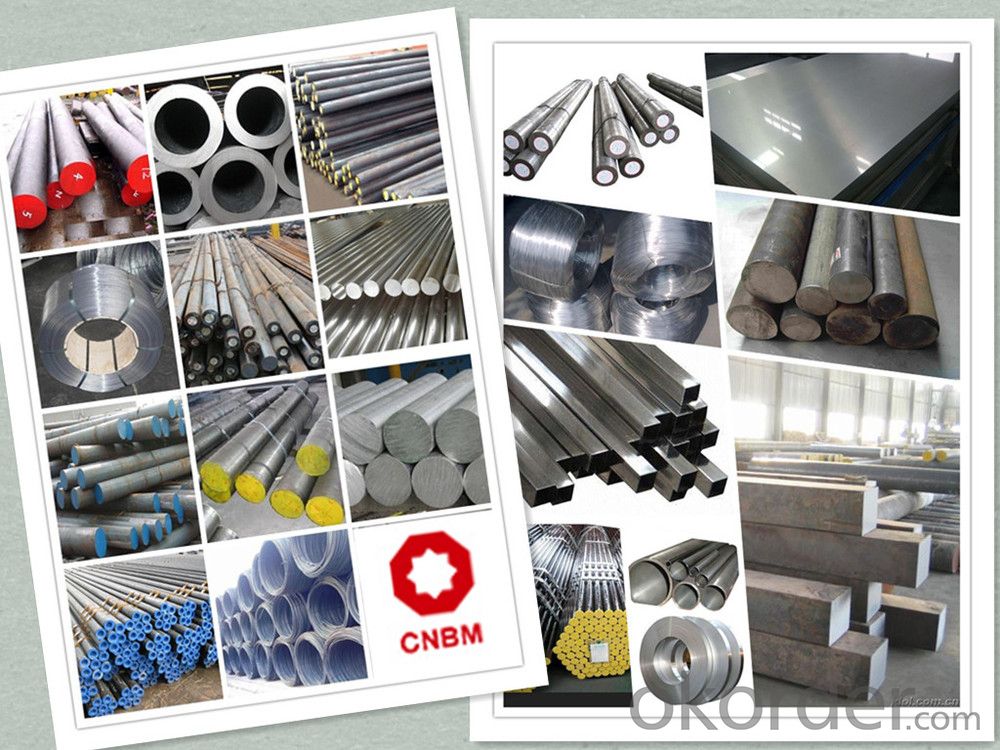
Work Shop
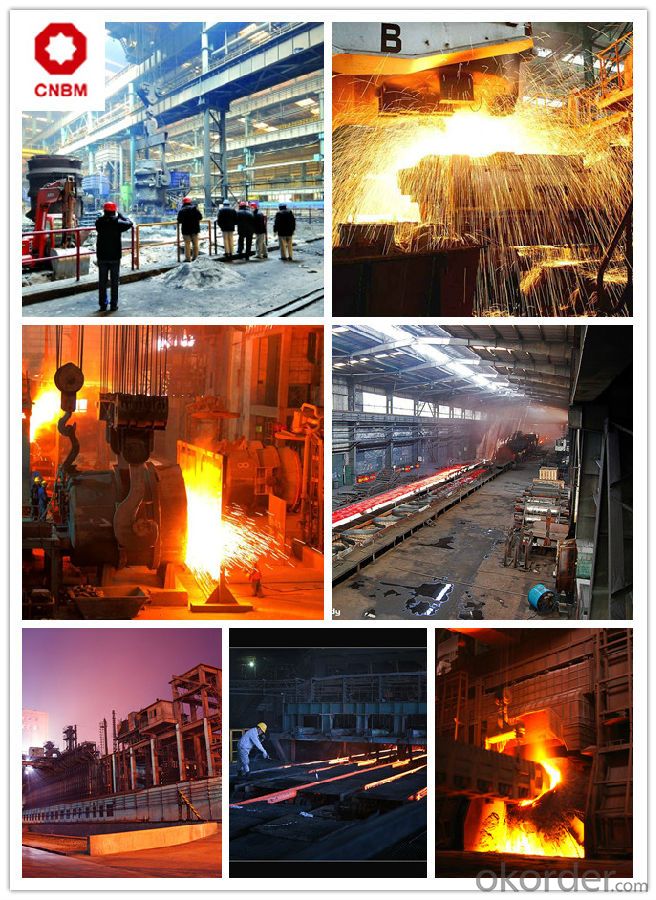
Company Information
CNBM International Corporation is the most important trading platform of CNBM group.
Whith its advantages, CNBM International are mainly concentrate on Cement, Glass, Iron and Steel, Ceramics industries and devotes herself for supplying high qulity series of refractories as well as technical consultancies and logistics solutions.

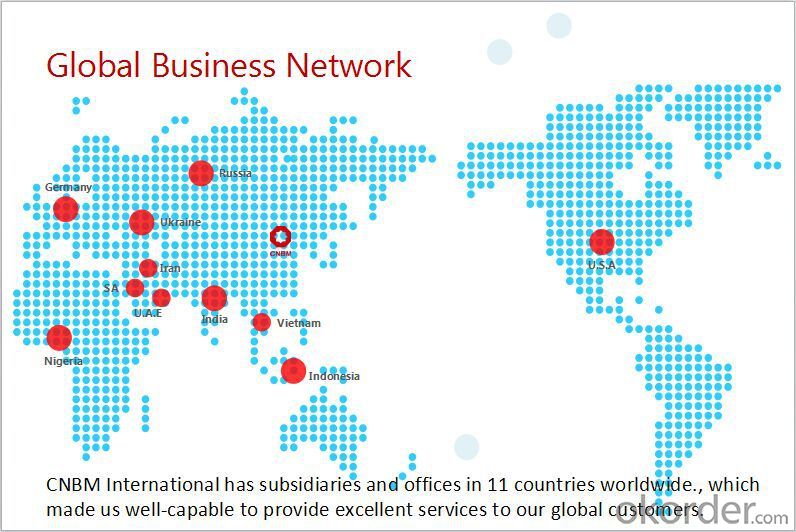
FAQ
1, Your advantages?
professional products inquiry, products knowledge train (for agents), smooth goods delivery, excellent customer solution proposale
2, Test & Certificate?
SGS test is available, customer inspection before shipping is welcome, third party inspection is no problem
3, Factory or Trading Company?
CNBM is a trading company but we have so many protocol factories and CNBM works as a trading department of these factories. Also CNBM is the holding company of many factories.
4, Payment Terms?
30% TT as deposit and 70% before delivery.
Irrevocable L/C at sight.
5, Trading Terms?
EXW, FOB, CIF, FFR, CNF
6, After-sale Service?
CNBM provides the services and support you need for every step of our cooperation. We're the business partner you can trust.
For any problem, please kindly contact us at any your convenient time.
We'll reply you in our first priority within 24 hours.
Packaging & Delivery
1, Packaging: seaworthy package or as required
2, Delivery: 35-45 days or based on quantity
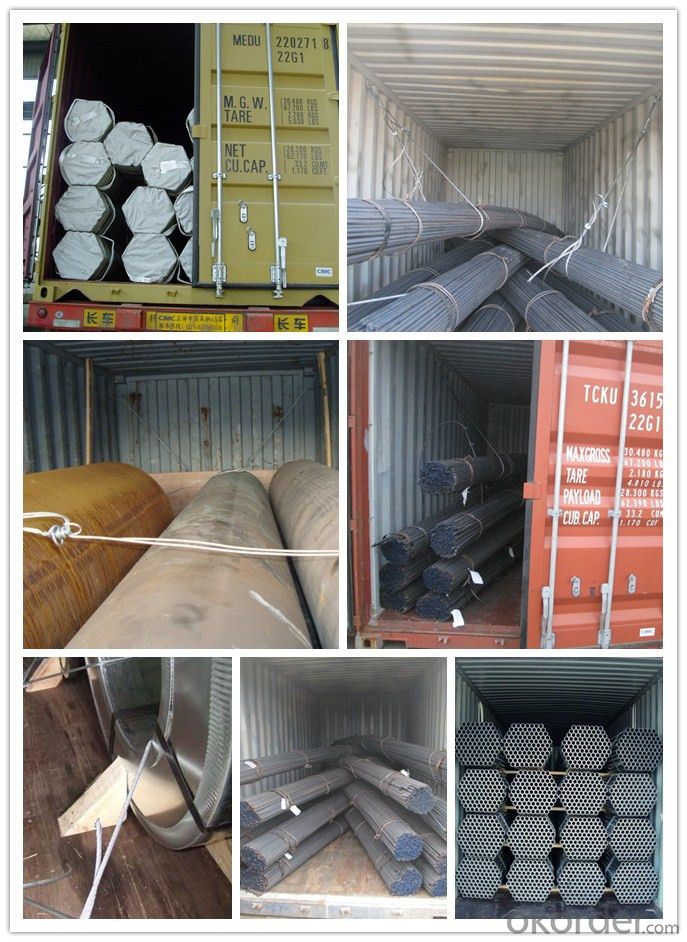
- Q: Can steel round bars be used in the manufacturing of conveyor systems?
- Yes, steel round bars can be used in the manufacturing of conveyor systems. Steel round bars are often used as the main structural component for conveyor systems due to their durability, strength, and ability to withstand heavy loads. They provide stability and support for the conveyor belt, rollers, and other components, making them an ideal choice for conveyor system construction.
- Q: Can steel round bars be coated or painted?
- Yes, steel round bars can be coated or painted. Coating or painting steel round bars can provide protection against corrosion, enhance aesthetics, and improve durability.
- Q: Can steel round bars be extruded?
- No, steel round bars cannot be extruded. Extrusion is a manufacturing process mainly used for creating objects with a fixed cross-sectional profile. Steel round bars are typically produced through hot rolling or cold drawing methods.
- Q: Can steel round bars be used for making jewelry?
- While gold and silver are commonly used for jewelry making, steel round bars can also be utilized in this craft. Steel round bars are particularly favored in industrial or modern jewelry designs due to their sleek and contemporary appearance. Moreover, steel possesses remarkable durability, resistance to tarnish, and affordability compared to other metals, making it an attractive option for those seeking a more economical choice. Nonetheless, it is worth noting that steel may not be suitable for delicate or intricate jewelry designs as it tends to be heavier than alternative metals. Furthermore, individuals with metal allergies should exercise caution as steel can potentially cause skin reactions. In such cases, it is advisable to opt for hypoallergenic or coated steel to ensure safety. Ultimately, the decision to incorporate steel round bars into jewelry making is contingent upon the desired style, durability, and budget preferences of the creator or purchaser.
- Q: What is the maximum temperature steel round bars can withstand?
- Steel round bars have varying maximum temperatures they can withstand depending on their specific grade. Nevertheless, most steel round bars generally remain structurally intact at temperatures between approximately 1000 and 1200 degrees Celsius (1832 to 2192 degrees Fahrenheit). It is worth mentioning that extended exposure to high temperatures can result in decreased strength and hardness of the steel, along with potential dimensional alterations and distortion. Moreover, the properties and behavior of steel at elevated temperatures can be influenced by factors like alloy composition, heat treatment, and the presence of other elements or impurities. If applications require steel round bars to endure exceedingly high temperatures beyond the typical range, specialized high-temperature steels like heat-resistant or creep-resistant alloys may be employed. These alloys are specifically engineered to retain their mechanical properties and structural integrity even at elevated temperatures, often reaching several thousand degrees Celsius.
- Q: Are steel round bars suitable for use in the manufacturing of valves?
- Yes, steel round bars are suitable for use in the manufacturing of valves. Steel is a versatile and widely used material in various industries, including valve manufacturing. Steel round bars offer several advantages that make them suitable for this application. Firstly, steel round bars provide high strength and durability, which are essential qualities for valves that are often subjected to high pressure and temperature conditions. Steel has excellent mechanical properties, including high tensile strength and resistance to impact, making it capable of withstanding the demanding operational requirements of valves. Secondly, steel round bars are readily available in a wide range of sizes and grades, allowing manufacturers to select the most appropriate material for their specific valve designs. Different grades of steel offer varying characteristics, such as corrosion resistance, heat resistance, and machinability, enabling the production of valves suitable for various environments and applications. Furthermore, steel round bars can be easily machined and fabricated to meet specific valve requirements. The round shape of the bar provides ease of processing, including cutting, drilling, and threading, allowing manufacturers to efficiently produce valves with complex geometries and precise dimensions. In addition to their mechanical properties and versatility, steel round bars also offer cost-effectiveness. Steel is a cost-efficient material compared to other alternatives, such as titanium or stainless steel, without compromising on the performance and reliability of the valves. Overall, steel round bars are a suitable choice for use in the manufacturing of valves due to their high strength, durability, versatility, and cost-effectiveness. These qualities make steel round bars a preferred material for valve manufacturers seeking to produce reliable and high-quality valves for various industrial applications.
- Q: Can steel round bars be used for making crankshafts?
- Yes, steel round bars can be used for making crankshafts. Crankshafts are important components in engines that convert the reciprocating motion of the pistons into rotational motion. Steel is a preferred material for crankshafts due to its high strength, durability, and ability to withstand the stress and load generated during engine operation. Steel round bars are often used for making crankshafts as they provide a solid and reliable foundation for the rotating assembly. The round shape of the bars allows for easy machining and shaping into the desired crankshaft design. Additionally, steel can be heat-treated to further enhance its mechanical properties, such as hardness and fatigue resistance, making it ideal for the demanding conditions and high-performance requirements of crankshafts in various engine applications.
- Q: Are steel round bars suitable for food processing applications?
- Steel round bars are commonly used in food processing applications due to their many desirable properties. Firstly, steel is highly durable and can withstand heavy usage and frequent cleaning in food processing environments. This makes it an ideal choice for equipment such as conveyor belts, mixers, and cutting tools. Additionally, steel round bars are resistant to corrosion, which is crucial in food processing applications where exposure to moisture and various chemicals is common. This resistance ensures that the equipment remains hygienic and safe for food production. Furthermore, steel round bars can be easily machined and fabricated into different shapes and sizes, making them versatile for various food processing needs. They can be used to create custom equipment or parts that meet specific requirements, ensuring efficient and effective food processing operations. Lastly, steel is a cost-effective material for food processing applications. It offers excellent value for money, as it provides long-lasting performance, requires minimal maintenance, and can be readily available in the market. However, it is important to note that not all steel round bars are suitable for food processing applications. Stainless steel is the most commonly used type of steel in this industry due to its enhanced corrosion resistance and hygienic properties. Therefore, when choosing steel round bars for food processing applications, it is crucial to ensure that they meet the necessary standards and regulations for food safety.
- Q: How do steel round bars compare to brass or copper bars?
- When comparing steel round bars to brass or copper bars, several key differences can be observed. Firstly, steel bars are renowned for their superior strength and durability. They possess a high tensile strength and can withstand heavy loads and impacts, making them ideal for applications that require robustness and toughness. Conversely, brass and copper bars are relatively softer and less rigid, making them more suitable for applications that prioritize malleability and electrical conductivity. Another noteworthy distinction lies in their resistance to corrosion. While brass and copper bars are highly regarded for their excellent corrosion resistance, steel bars, particularly carbon steel, are more susceptible to rusting. However, stainless steel round bars exhibit high resistance to corrosion due to the presence of chromium, making them a suitable alternative to brass or copper bars in environments where corrosion is a concern. In terms of cost, steel round bars are generally more economical compared to brass or copper bars. This is mainly due to the greater availability and lower production costs associated with steel. Brass and copper, being non-ferrous metals, are less abundant and require more complex extraction and refining processes, resulting in relatively higher costs. Moreover, steel round bars offer a wide range of mechanical properties, such as different grades and compositions, enabling customization based on specific application requirements. Conversely, brass and copper bars have more limited options in terms of strength and hardness variations. Overall, the choice between steel, brass, or copper round bars depends on the specific application and desired properties. Steel bars are preferred for their strength, durability, and cost-effectiveness, while brass or copper bars are favored for their malleability, electrical conductivity, and corrosion resistance.
- Q: What kind of steel pipe is round steel?
- First of all, this is the two concept, round steel solid, hollow steel pipe; secondly, the round bar is divided into hot rolling, forging and cold drawn three. Generally seamless steel pipe can be divided into hot rolling (extrusion), cold rolling (pull), heat expansion of the basic types of steel pipe. Hope to be of help to you
Send your message to us
Carbon Steel Rod SAE 1020 Carbon Steel Bar
- Loading Port:
- Shanghai
- Payment Terms:
- TT OR LC
- Min Order Qty:
- 30 m.t.
- Supply Capability:
- 120000 m.t./month
OKorder Service Pledge
OKorder Financial Service
Similar products
Hot products
Hot Searches
Related keywords
